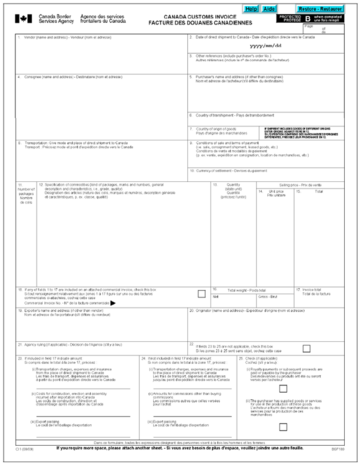What Is A Customs Broker And What Documents Do I Need To Send Them (DIY Customs Consulting)
| This article is part of the Customs Compliance Guide |
A licensed customs broker handles the customs process for commercial shipments to clear going into Canada with Canada Border Services Agency (CBSA). Traditionally, importers rely on the customs broker to file specific information with customs about the shipment including:
- Completing required documentation for export shipments
- Clearing shipments of imported goods
- Collecting required duties and taxes
- Preparing customs accounting documents
- Consulting on things like how to take advantage of free trade agreements
In most cases it is the importer or shipper that will provide the shipping documents to the highway carrier as well as providing information on what customs broker to send the paperwork to. As a highway carrier, it's recommended to talk to the importer or shipper about information on who the customs broker is and to provided all the proper documents to the carrier.
Depending on the shipment release type, the importer or shipper must provide a commercial invoice, packing list or other documentation that may be required, such as a NAFTA certificate or Canadian Food Inspection Agency (CFIA) documentation. The highway carrier will also have to provide a Bill of Lading and a PARS barcode label affixed to either the commercial invoice or bill of lading before sending the shipping documents to the customs broker.
The commercial invoice must have the following information:
- Sellers name, phone number, and address
- Buyers name, phone number, and address
- Description of the goods (including the tariff information and value)
- Country of manufacture of goods
- PARS barcode label (if clearing as a PARS)
The shipping documents must also include a Bill of Lading. A Bill of Lading is a legal document issued by the highway carrier to the shipper that details the shipment information such as a load number, description of goods, quantity and weight. It also acts as a title of receipt for the shipped goods and the contract between the carrier and the shipper.
In addition to the customs documents mentioned above, the highway carrier will also need to inform the customs broker of the Canadian port of arrival and the estimated time and date of arrival. In most cases this is written directly below the carriers PARS barcode label on the commercial invoice or bill of lading.

